Location:
910 Broadway St., Lincoln, Logan County
Year built:
1880
Original owner:
Congregation of Allen Chapel
Current owner:
Illinois Conference AME Church
(Photo credit: Paul Morgan)
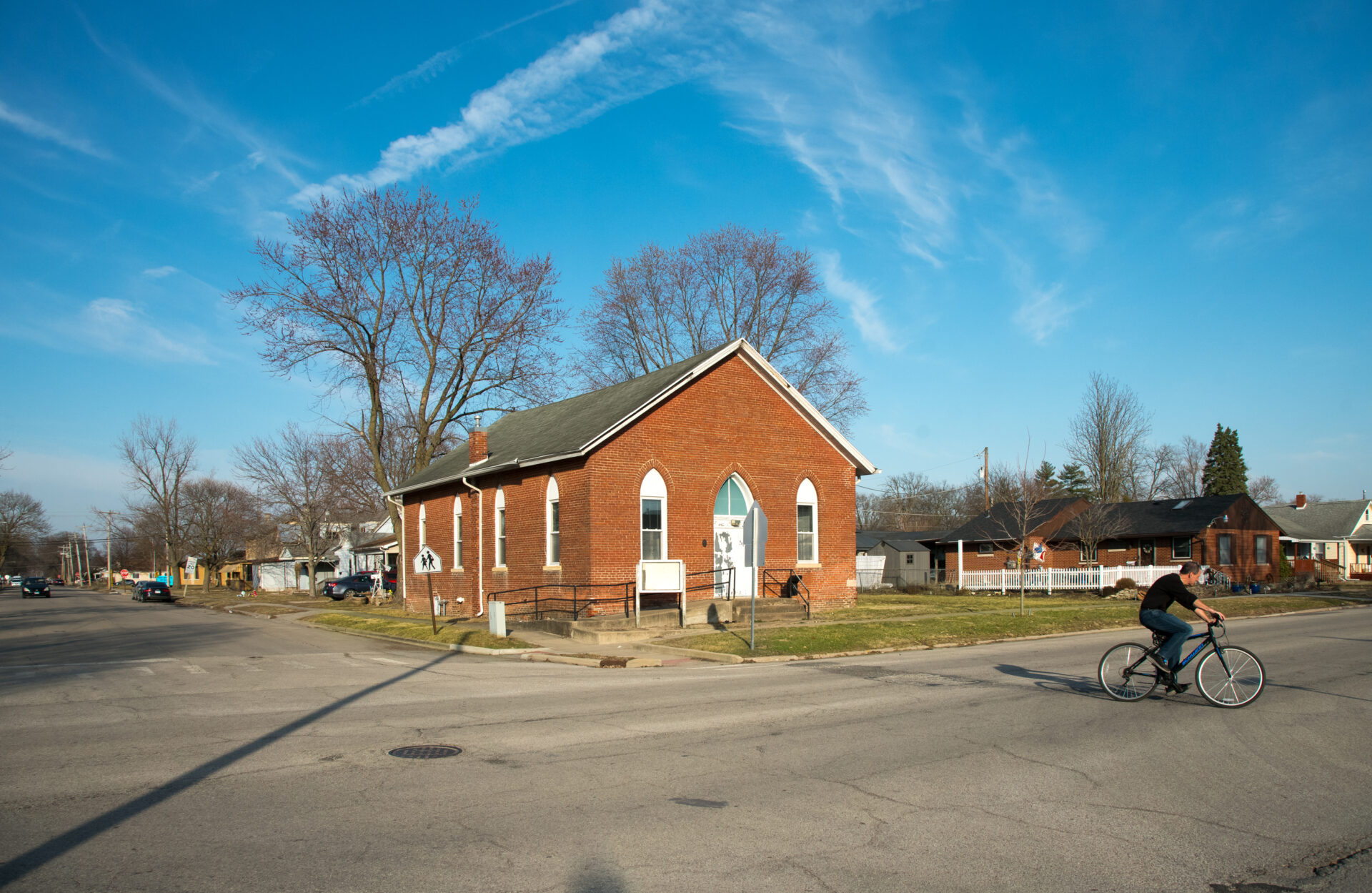
910 Broadway St., Lincoln, Logan County
1880
Congregation of Allen Chapel
Illinois Conference AME Church
(Photo credit: Paul Morgan)
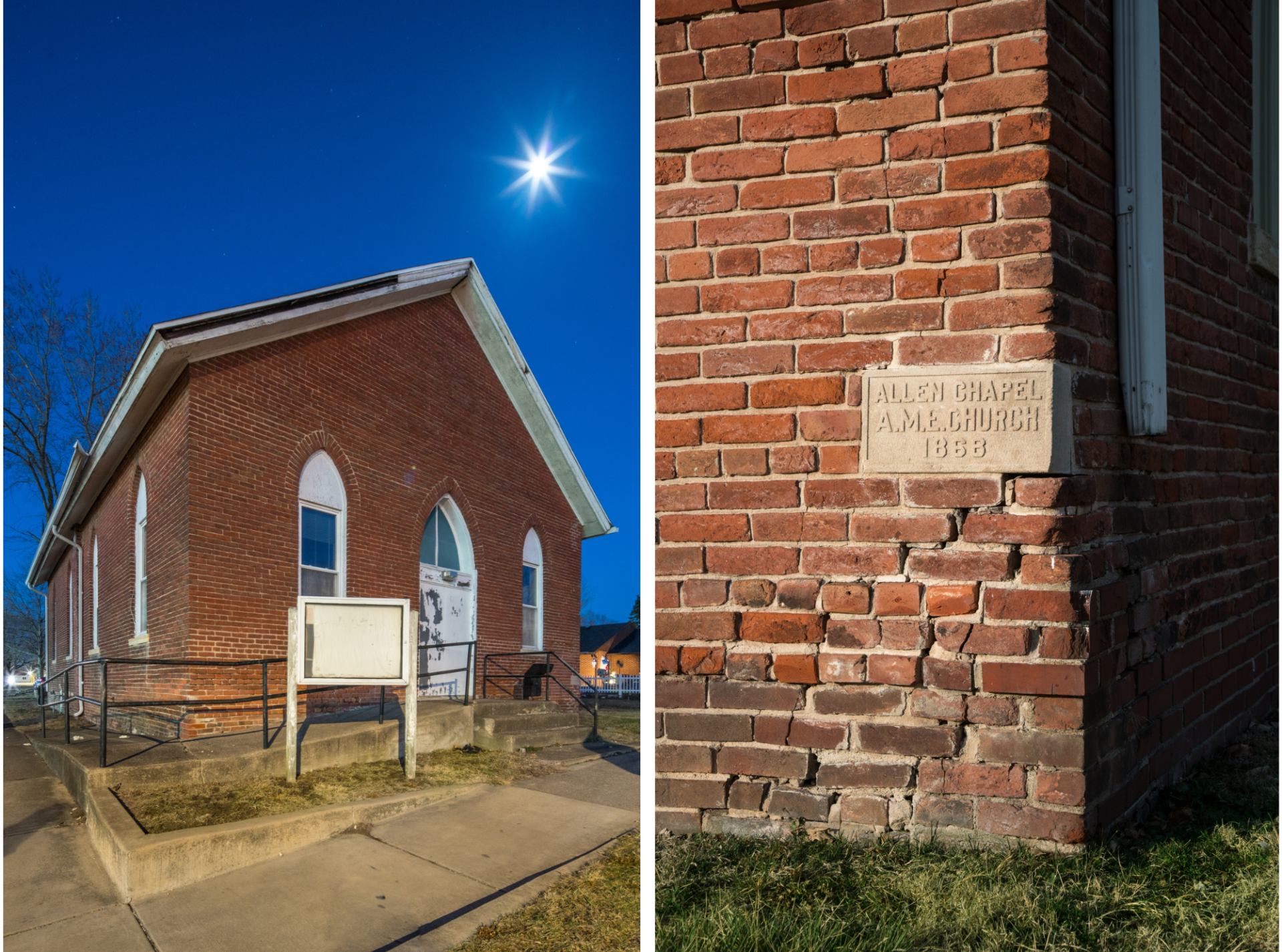
The Allen Chapel AME Congregation was established in 1868 by formerly enslaved people and their descendants. They erected the Allen Chapel AME Church in 1880. The church is an enduring, tangible reminder of 19th-century African American history in Lincoln, Illinois. Like other African Methodist Episcopal (AME) churches, Allen Chapel was not merely a house of worship but also served as a community space for Black residents. Harlem Renaissance poet Langston Hughes attended the church with his mother, Carrie, while living in Lincoln as a child. Other notable congregants include Aaron Dyer, a conductor on the Underground Railroad in Springfield, and his grandson, Dr. William “Billie” Dyer, who served as a military surgeon during World War I.
(Photo credits: Paul Morgan)
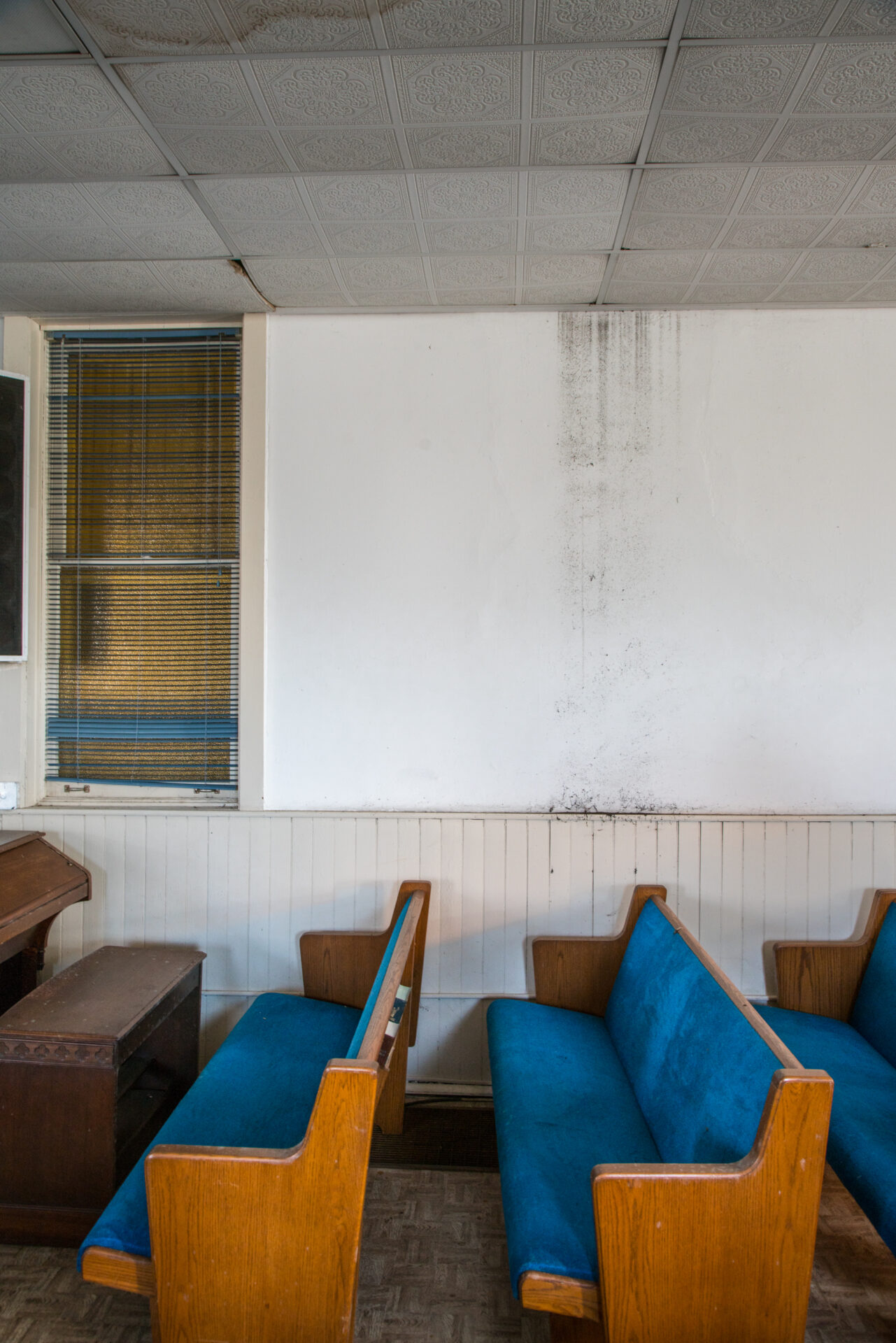
Allen Chapel closed its doors in 2012 and has remained vacant since then. The chapel has deteriorated over the past decade due to a lack of use and maintenance. The building’s roof is in poor condition, tuckpointing and foundation work is needed, and the chapel’s interior is dilapidated and requires mold remediation.
(Photo credit: Paul Morgan)
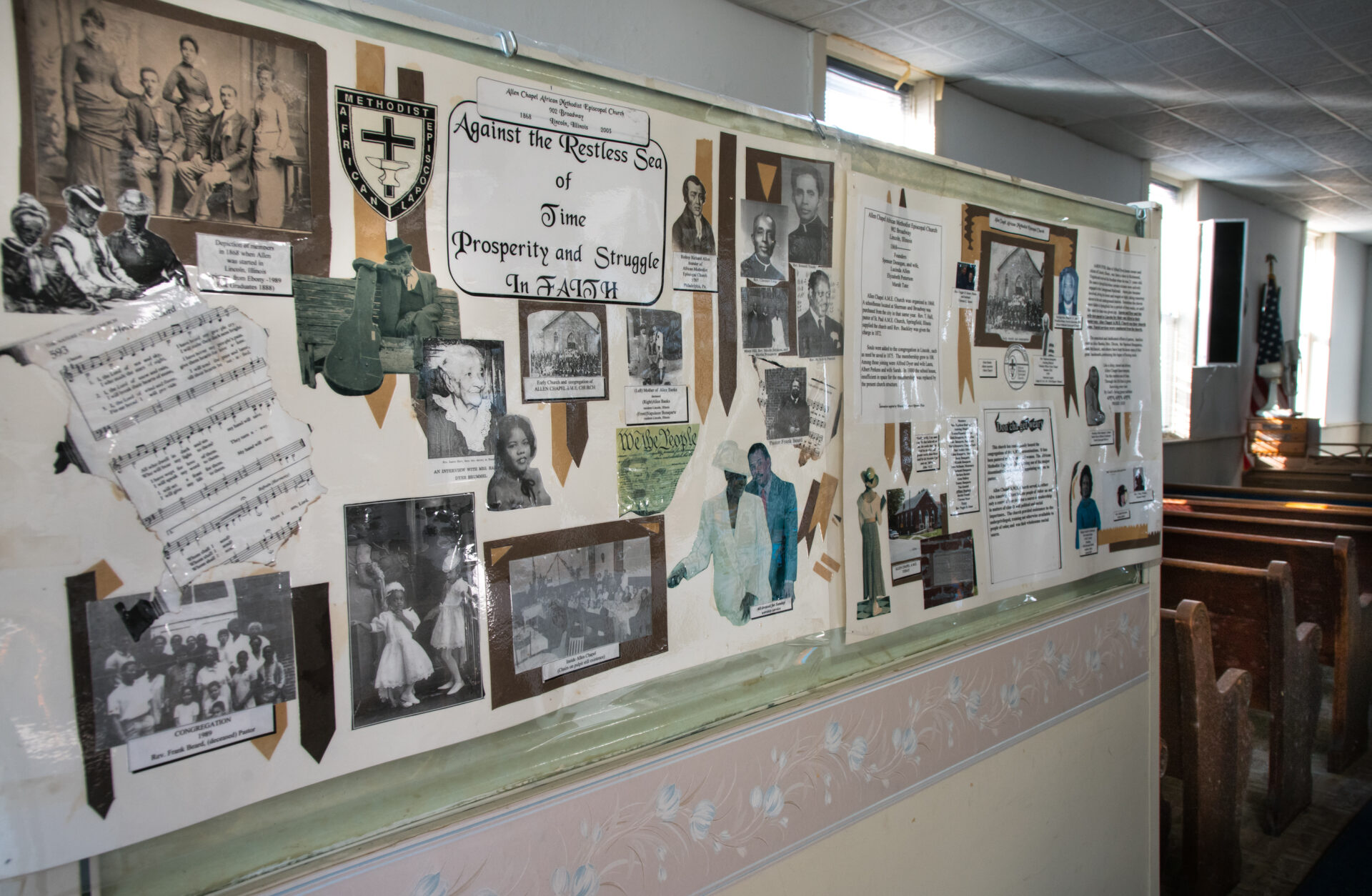
The chapel’s owner, the Illinois Conference AME Church, must prioritize addressing the building’s deteriorated condition. The chapel could be reused as an interpretive center with a focus on the history of Lincoln’s African American Community, the Underground Railroad and the city’s connection to Langston Hughes.
(Photo credit: Paul Morgan)
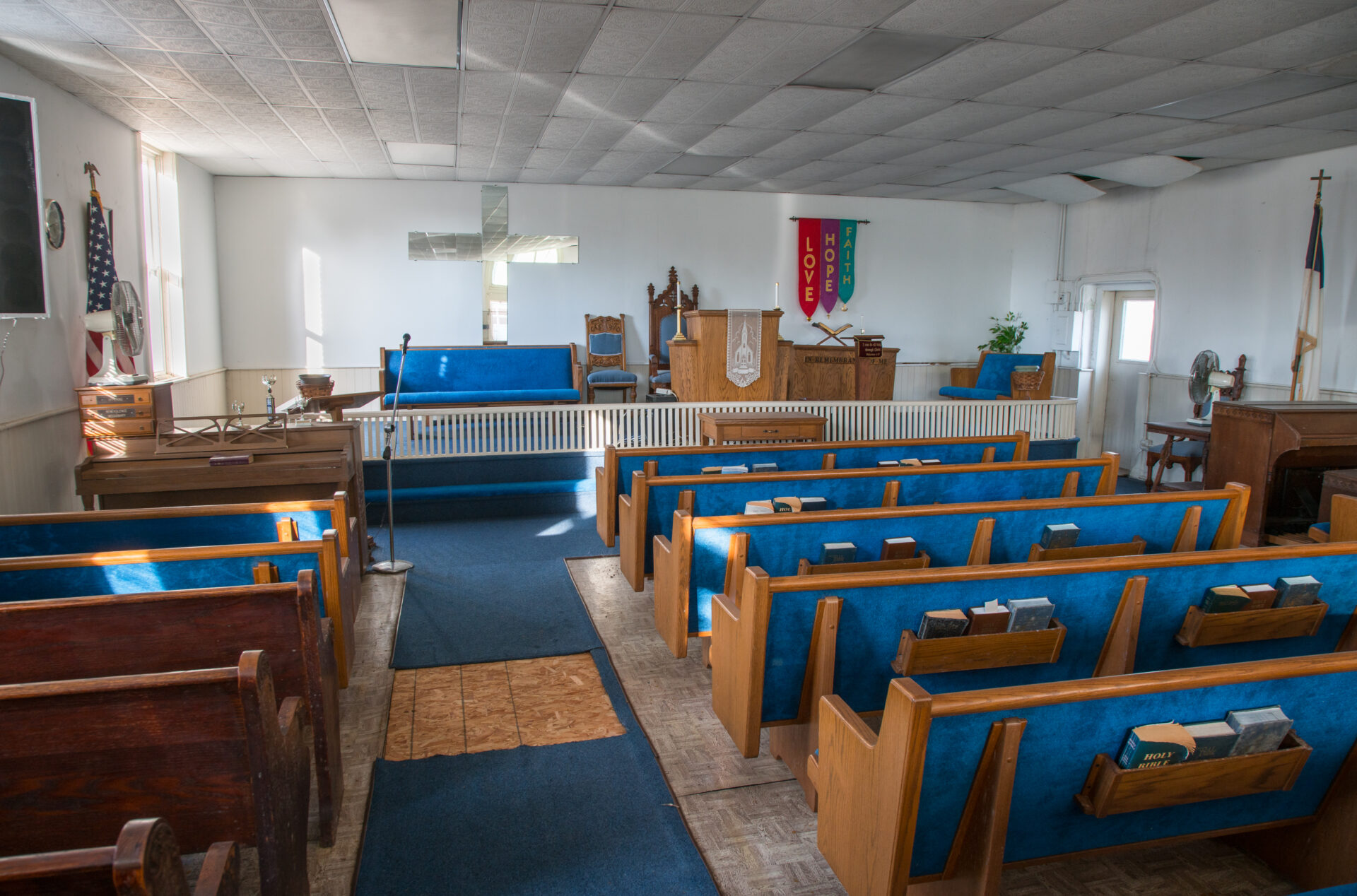
Contact Lincoln Historic Preservation Commissioner Ron Keller for more information.
(Photo credit: Paul Morgan)
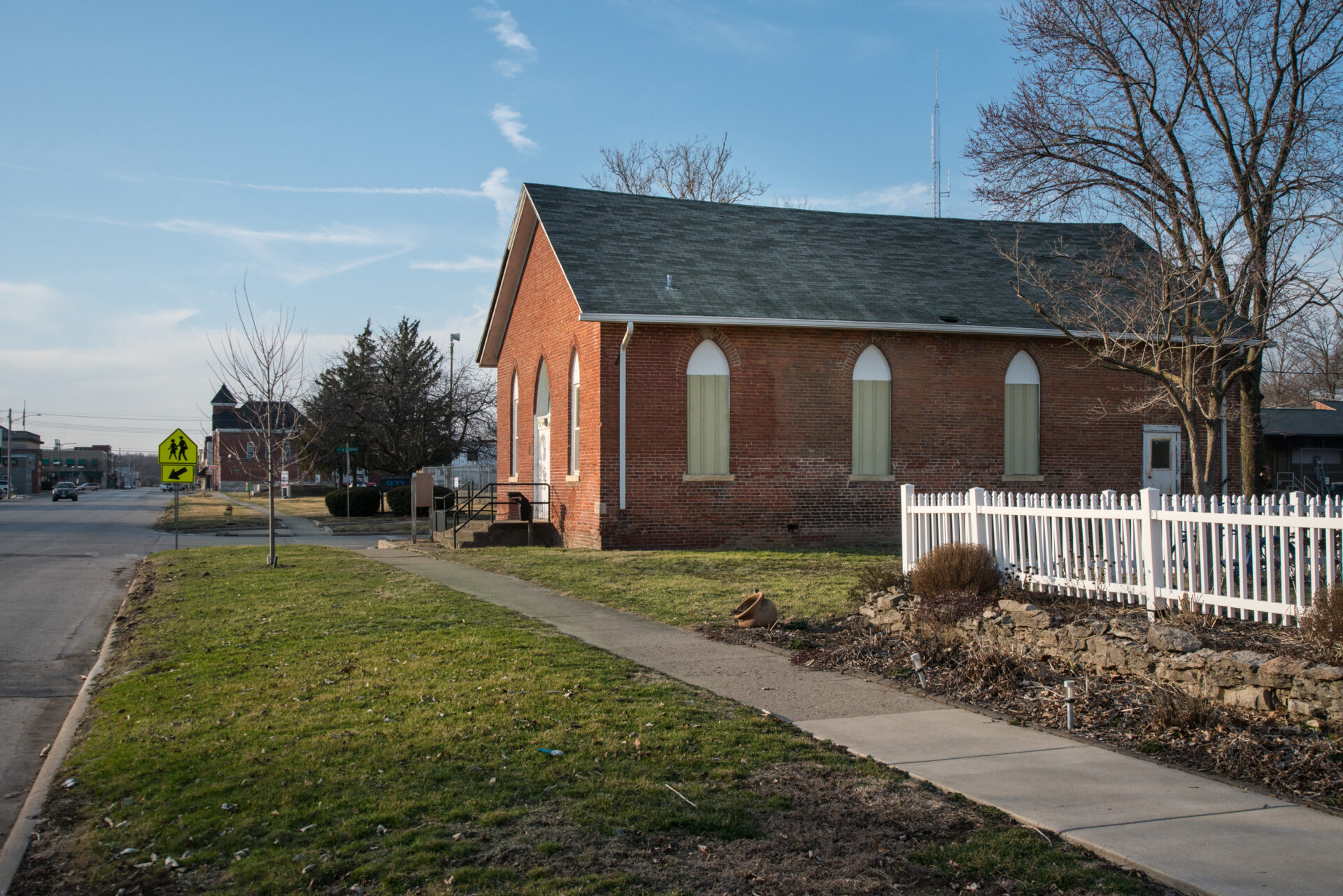
“Historic buildings are our tangible connection to the past. The Allen Chapel African Methodist Episcopal Church in Lincoln, whose members included the great poet Langston Hughes, stands as a significant relic of a forgotten heritage. From the post-Civil War era through the 20th century, Allen Chapel became the place where the local African American community gathered in kindred spirit, in common faith and in shared struggle amidst the outside world of segregation.”
(Photo credit: Paul Morgan)
Be a voice for the future of our communities by supporting Landmarks Illinois. Our work enhances communities, empowers citizens, promotes local economic development and offers environmentally sound solutions.